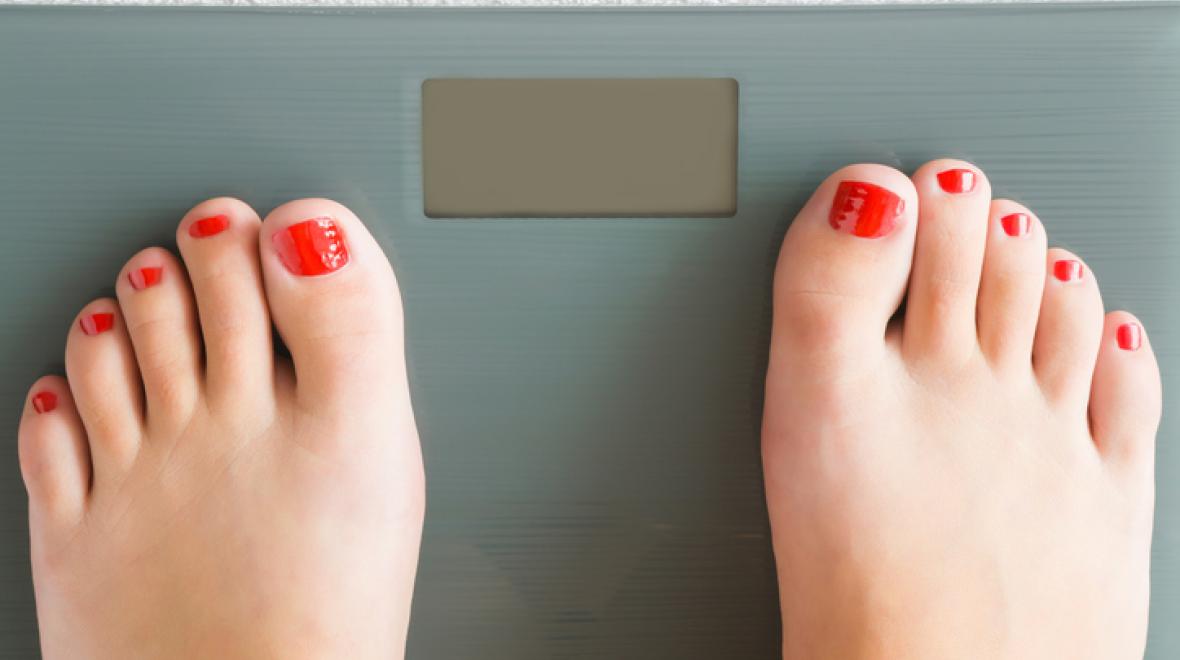
Earlier this month, Weight Watchers caused a stir when the company announced they'd be offering free memberships to teens age 13–17. Billed as a method of helping teens develop healthy eating habits at a "critical life stage," the campaign was quickly met with backlash using the hash tag #WakeUpWeightWatchers.
Many of those who pushed back against the new campaign talked about the harmful impacts of dieting and the risk of developing eating disorders, which often begin during the teen years. But while a free membership to Weight Watchers isn't the best idea for most teens, that doesn't mean there's nothing parents can do to help their kids develop a positive body image.
Parents often think that they shouldn’t ever talk about their kid’s weight. As a longtime body positivity and fat acceptance activist — and a parent — I don’t think this is good advice. While clearly well-intentioned, it misses the mark.
Kids, like the rest of us, have bodies that come in all shapes and sizes. This is a good thing! The problem is that not all bodies are treated the same in this society. Fat* bodies, whether belonging to a child or an adult, are often ridiculed. Children are especially likely to be cruel to others whose bodies don’t conform to the typical body type that we see on TV and other media.
Whether your kid is fat, thin or in-between, you should be talking about bodies. However, knowing how to have these conversations is important because it is very easy to accidentally say something that can erode the positive body image that you are trying to develop in your children. Here are a few things to keep in mind.
Start talking about bodies as soon as your child can understand.
Like many of the important parenting issues, such as sex and drugs, you can’t just have one conversation with your kids and be done with it. Even as toddlers you can point out how some people have big bellies and some people have small bellies, or how some people are taller and others are shorter. Kids should grow up knowing that bodies can look different, whether that’s because of race, fatness, disability or other reasons. The idea is for kids to understand that body diversity is a good thing and that there is no wrong way to have a body.
Point out inequality.
Fat people are treated horribly, and there is a huge lack of representation in the media. This is something that you can point out. “You know how Momma has a big belly? There aren’t many people on TV that have bellies like mama. It’s not fair that there is not all different kinds of bodies on TV.”
Talk about food and exercise separate from weight.
When you encourage your kids to eat healthier and to move their bodies, make sure that there is no talk of weight associated with it. Eating a variety of foods is great for kids and helps them expand their palates. Playing outside or dancing or participating in sports should be encouraged for their own sake. Tying weight loss to previously fun activities can take the joy out of the activities and can give kids harmful relationships with food and exercise.
Never ever encourage your child to lose weight.
Tons of people in the fat liberation community have horror stories of being put on diets at young ages. In my opinion, no one of any age should ever go on a diet. However, for kids it can be extra harmful. Fat kids need to know that their bodies are great no matter what they look like.
If you are concerned about lack of nutrition or exercise, you can add more nutrient rich foods or engage in activities as a family that include exercise. Whether these changes will result in weight loss is irrelevant as these healthy behaviors will likely increase health whether or not there is weight loss. Preoccupation with weight will lead to body image issues or even eating disorders down the line.
Fat kids may need extra support.
If your child is larger than other kids, they may experience bullying or harassment at school. Kids that are “different” in any way can be targets. Pretending that they are not different will not help anything and can erode trust between you and your child.
It is especially important for fat kids to have positive role models that are fat, especially since the media often depicts fat people as unintelligent or lazy. If your child is being bullied for their size, the appropriate response is to step in to stop the bullying. The response should NOT be for your child to lose weight. Help them have confidence in their body and understanding that all bodies are good bodies.
Remember that there is no wrong way to have a body, and that diversity in body type is a good thing! Weight can be a sensitive topic, but as long as you frame it like that you should be able to have these necessary conversations without causing harm to your child’s self-esteem.
*I’m using “fat” here as a neutral descriptor of someone’s weight. It’s not a slur, but rather a term that has been reclaimed to mean having more adipose tissue than other people. Just like people can be tall or short, they can be fat or thin.











